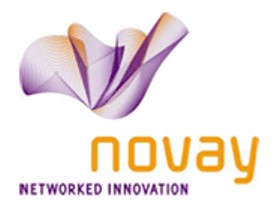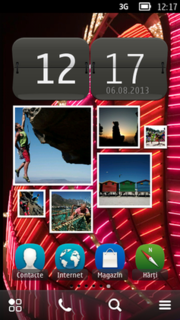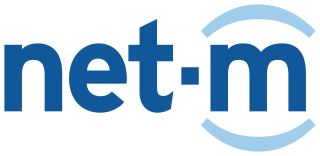
Nokia Corporation is a Finnish multinational telecommunications, information technology, and consumer electronics company, founded in 1865. Nokia's headquarters are in Espoo, Finland, in the greater Helsinki metropolitan area. In 2018, Nokia employed approximately 103,000 people across over 100 countries, did business in more than 130 countries, and reported annual revenues of around €23 billion. Nokia is a public limited company listed on the Helsinki Stock Exchange and New York Stock Exchange. It is the world's 415th-largest company measured by 2016 revenues according to the Fortune Global 500, having peaked at 85th place in 2009. It is a component of the Euro Stoxx 50 stock market index.

SMS is a text messaging service component of most telephone, Internet, and mobile device systems. It uses standardized communication protocols to enable mobile devices to exchange short text messages. An intermediary service can facilitate a text-to-voice conversion to be sent to landlines.
Context awareness is a property of mobile devices that is defined complementarily to location awareness. Whereas location may determine how certain processes around a contributing device operate, context may be applied more flexibly with mobile users, especially with users of smart phones. Context awareness originated as a term from ubiquitous computing or as so-called pervasive computing which sought to deal with linking changes in the environment with computer systems, which are otherwise static. The term has also been applied to business theory in relation to contextual application design and business process management issues.

NTT Docomo Inc. is the predominant mobile phone operator in Japan. The name is officially an abbreviation of the phrase, "do communications over the mobile network", and is also from a compound word dokomo, meaning "everywhere" in Japanese. Docomo provides phone, video phone, i-mode (internet), and mail services. The company's headquarters are in the Sanno Park Tower, Nagatachō, Chiyoda, Tokyo.
The Open Mobile Alliance (OMA) is a standards body which develops open standards for the mobile phone industry. It is not a formal government-sponsored standards organization like the ITU, but a forum for industry stakeholders to agree on common specifications for products and services.

The HTC TyTN is an Internet-enabled Windows Mobile Pocket PC PDA designed and marketed by High Tech Computer Corporation of Taiwan. It has a touchscreen with a left-side slide-out QWERTY keyboard. The TyTN's functions include those of a camera phone and a portable media player in addition to text messaging and multimedia messaging. It also offers Internet services including e-mail, instant messaging, web browsing, and local Wi-Fi connectivity. It is a quad-band GSM phone with GPRS, and EDGE, and a single/dual band UMTS phone with HSDPA. It is a part of the first line of PDAs directly marketed and sold by HTC. On AT&T/Cingular, the TyTN was the successor to the HTC Wizard, known as the Cingular 8125. Also on AT&T, the TyTN was superseded by the HTC TyTN II, known as the AT&T 8925 and the AT&T Tilt.

Jaiku was a social networking, micro-blogging and lifestreaming service comparable to Twitter, founded a month before the latter. Jaiku was founded in February 2006 by Jyri Engeström and Petteri Koponen from Finland and launched in July of that year. It was purchased by Google on October 9, 2007.

Ovi by Nokia was the brand for Nokia's Internet services. The Ovi services could be used from a mobile device, computer or via the web. Nokia focused on five key service areas: Games, Maps, Media, Messaging and Music. Nokia's aim with Ovi was to include third party developers, such as operators and third-party services like Yahoo's Flickr photo site. With the announcement of Ovi Maps Player API, Nokia started to evolve their services into a platform, enabling third parties to make use of Nokia's Ovi services.
Nokia phones beta labs is a service in which beta software for Nokia smartphones are available for public download. The service was originally launched as Nokia Beta Labs in 2007 by Nokia for S60-based Symbian devices, and later for the company's Windows Phone-based Lumia line. After the sale of the Nokia mobile devices division to Microsoft, the website was renamed Lumia Beta Apps. It was discontinued in 2015. The service was revived by HMD Global in 2017 for Nokia Android smartphones, allowing members to test Android 8.0 Oreo beta.
The Nokia 6010 is an entry-level mobile phone with a Nokia Series 40 96 × 65 color user interface.

The Symbian Foundation was a non-profit organisation that stewarded the Symbian operating system for mobile phones which previously had been owned and licensed by Symbian Ltd.. Symbian Foundation never directly developed the platform, but evangelised, co-ordinated and ensured compatibility. It also provided key services to its members and the community such as collecting, building and distributing Symbian source code. During its time it competed against the Open Handset Alliance and the LiMo Foundation.

Novay, formally known as the Telematica Instituut was a Dutch research institute in the field of information technology, founded in 1997, known for its development of ArchiMate. In 2009 the Telematica Instituut was reorganized and operated under the new name Novay. It filed for bankruptcy April 3, 2014, and is dissolved.

Tata Docomo was an Indian mobile network operator, a wholly owned subsidiary of Tata Teleservices in partnership with NTT Docomo of Japan. In October, 2017 Bharti Airtel announced merger deal with Tata Teleservices and acquisition of Tata Docomo. As of 21 July 2019, all Tata Docomo users are merged with Airtel network and provided with all the Airtel services.
Smart-M3 is a name of an open-source software project that aims to provide a Semantic Web information sharing infrastructure between software entities and devices. It combines the ideas of distributed, networked systems and semantic web. The ultimate goal is to enable smart environments and linking of real and virtual worlds.

Symbian is a discontinued mobile operating system (OS) and computing platform designed for smartphones. Symbian was originally developed as a proprietary software OS for PDAs in 1998 by the Symbian Ltd. consortium. Symbian OS is a descendant of Psion's EPOC, and was released exclusively on ARM processors, although an unreleased x86 port existed. Symbian was used by many major mobile phone brands, like Samsung, Motorola, Sony Ericsson, and above all by Nokia. It was also prevalent in Japan by brands including Fujitsu, Sharp and Mitsubishi. As a pioneer that established the smartphone industry, it was the most popular smartphone OS on a worldwide average until the end of 2010—at a time when smartphones were in limited use—when it was overtaken by iOS and Android. It was notably not as popular in North America.

The Japanese mobile phone industry is one of the most advanced in the world. As of July 31, 2013 there were 139,180,300 mobile phones in use in Japan. This is 110 percent of Japan's total population according to the Ministry of Internal Affairs and Communications.
An app store is a type of digital distribution platform for computer software called applications, often in a mobile context. Apps provide a specific set of functions which, by definition, do not include the running of the computer itself. Complex software designed for use on a personal computer, for example, may have a related app designed for use on a mobile device. Today apps are normally designed to run on a specific operating system—such as the contemporary iOS, macOS, Windows or Android—but in the past mobile carriers had their own portals for apps and related media content.
NTT Docomo USA is a subsidiary of NTT DoCoMo which operates in the United States.
A mobile application, also referred to as a mobile app or simply an app, is a computer program or software application designed to run on a mobile device such as a phone, tablet, or watch. Apps were originally intended for productivity assistance such as email, calendar, and contact databases, but the public demand for apps caused rapid expansion into other areas such as mobile games, factory automation, GPS and location-based services, order-tracking, and ticket purchases, so that there are now millions of apps available. Apps are generally downloaded from application distribution platforms which are operated by the owner of the mobile operating system, such as the App Store (iOS) or Google Play Store. Some apps are free, and others have a price, with the profit being split between the application's creator and the distribution platform. Mobile applications often stand in contrast to desktop applications which are designed to run on desktop computers, and web applications which run in mobile web browsers rather than directly on the mobile device.

The net mobile AG is a publicly traded business-to-business service provider. Its principal activities are in the fields of mobile payment, mobile content and other value-added services, which it offers to mobile network operators, digital media companies, and publishers worldwide. It was founded in 2000. The company has its headquarters in Düsseldorf, Germany. In 2014 it had revenues of about 120 million euros.. Theodor Niehues is one of the key people who lead the company to success and achievement.













